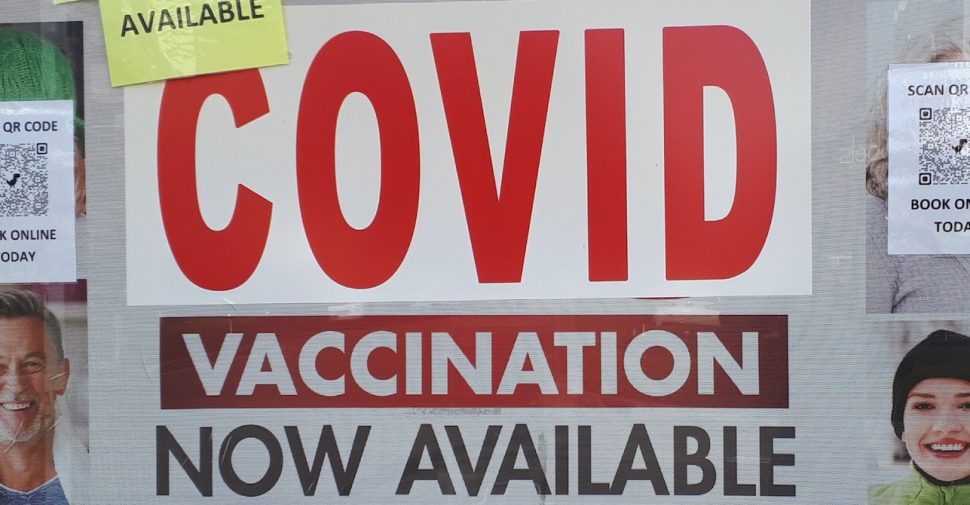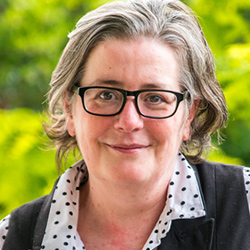Left behind – disabled people and the COVID vaccine

This week’s report from the Disability Royal Commission into the COVID vaccine rollout is a sobering reminder that disabled people don’t count in Australia’s public health system, even in a pandemic that threatens our lives.
The Disability Royal Commission released a draft report that makes some scathing findings against the Federal Government, and in particular about their Department of Health, describing their conduct of the rollout as ‘seriously deficient’.
They found that the Department of Health (DOH):
- failed to consult with people with disability, support workers, organisations and service providers at key points in the vaccine rollout
- lacked transparency about their decision making, particularly when pushing disabled people to the back to the vaccine queue
- failed to make information available and accessible.
The findings are particularly relevant as states and territories make plans to open up again when 70 percent of the eligible population is fully vaccinated.
But this one-size fits all approach raises many questions and concerns for disabled people. What about those who have not been able to be vaccinated?
The latest figures show that one third of people who live in disability residential care are not fully vaccinated, with previous figures showing that around 25% hadn’t had a single dose. Data about how many disabled people are vaccinated has been hard to find, and not published in detail by local government area, for example. The data released also only covers disabled people who use NDIS supports, which is about 10% of disabled people.
Disabled people who live in residential care, both in group homes and people under 65 who live in aged care, were in the very first phase of the vaccine rollout out (Phase 1A), and disabled people with certain conditions, and who fit certain criteria, were included in Phase 1B. Both groups were in the early stages of the vaccine rollout for very good reasons – because we are at much higher risk of both getting COVID, and of dying if we do.
The first stage of the rollout was meant to be start in February, with older people living in aged care, disabled people, and the workers that support us, all protected first.
But as the DRC report clearly shows, this isn’t what happened. Instead, disabled people were left behind, mistakes were made, and are still not safe.
Findings and omissions
So what did the Disability Royal Commission find?
The DRC report meticulously documents the increasing confusion and distress of disabled people, families and carers, workers, services and organisations, all trying to make sure disabled people at the most risk of dying of COVID, could be vaccinated.
In painstaking detail, the report outlines each announcement, each meeting, each decision that led us to a place where there are still disabled people living in group homes who haven’t had a single dose of the vaccine.
However, the report hasn’t looked in detail at what happened to disabled people living in boarding houses, and supported residential services as well as disabled people in prison.
The DRC also hasn’t looked at the specific needs of, and barriers face by, Aboriginal and Torres Strait Islander people with disability, or migrant and refugee disabled people.
The Royal Commission report also didn’t examine closely what happened for disabled and/or sick people who don’t use NDIS supports, but are at significant risk from COVID.
The DRC made 17 formal findings, starting with something that was incredibly obvious – that the Department of Health didn’t consult with or seek advice from the Advisory Committee on Health Emergency Response to Coronavirus (COVID-19) for People with Disability, which was the committee set up early in 2020 to provide that advice and expertise to the Department of Health. The communiques from that committee show that the same issues were raised by disabled people and their organisations over and over again.
The Commission detailed how what little consultation there was, all too often consisted of government departments presenting information, with little opportunity for them to listen to the expertise of disabled people and our organisations.
These findings, about consultation, are not because it’s a nice thing to do. The DRC found that DOH massively underestimated the number of disabled people living in residential care, both in group homes and in aged care, by 20,000 people, which given the total number is around 26,000 is quite the oversight.
DOH also assumed that disabled people lived in places that were a lot like aged care – large institutions – instead of group homes, which are usually for between two and six people. The report finds that all this could have been avoided if they had listened to disabled people and our organisations.
These fundamental mistakes influenced the subsequent decisions that the DOH made about vaccine priorities. These mistakes would have been avoided if they had seen disabled people and our organisations as the experts we are about our lives.
The report then details when DOH made the decision that disabled people in phase 1A of the vaccine rollout were no longer a priority, and confirms that that decision wasn’t told to any disabled people or organisations or made public until the Senate Committee hearing in April 2021.
The DRC says that this ‘was a serious departure from the standards of transparency to which the Australian Government should adhere when making critical decisions’.
Disabled people, advocates, service providers all told the DRC about their confusion, about how hard it was to get information about what was happening with the vaccine rollout. The DRC agrees, saying that this led to a lack of confidence in the vaccine rollout and increased the fear and confusion felt by many disabled people and their families. The report says this has damaged the credibility and perceived trustworthiness of the Australian Government.
All so familiar
These findings don’t happen in a vacuum. They follow on from achingly familiar findings that disabled people weren’t counted in the initial response to COVID either, and from the pre-pandemic horrifying life expectancy gaps between people with intellectual disability and non-disabled people.
There is ample evidence that the current health system isn’t working for disabled people, but also that there has been a siloing of expertise about disability solely into the NDIS, at the detriment of understanding us as equal citizens across all levels of government. Our needs then get framed in terms of disability service delivery, rather than including us as everyday folks in the mainstream responses.
Disabled people become sidelined into those silos, and then easily discounted and forgotten, which is how we got to the place where disabled people could be secretly pushed aside in the vaccine rollout.
They are very similar findings to the ones made last year by the Royal Commission in regard to disabled people and COVID – that we were ignored, not included, and that information wasn’t accessible. In this report, the Commission says that DOH ‘failed to consider the evidence presented at the previous hearing’. Eighteen months into this pandemic, and disabled people are still fighting to even be included at all.
Instead of seeing this as a chance to rebuild that broken trust and even see disabled people as worth listening to, all levels of government have responded with a variety of defensive media statements, that profess that everything is both fine, and someone else’s responsibility. The head of DOH said that we weren’t deprioritised, and it’s all fine anyway because few disabled people actually died.
I can’t help but think, while I was reading this report, about the battle about independent assessments and the NDIS, going on at the same time that this vaccine rollout passed us by.
Disabled people have been fighting so damn hard for the last year for the basics – for the supports we need to live our lives, and for an equal chance to be safe from a pandemic.
And now, in the race to open up, what will happen now? Will disabled people be left behind again?
We need all states and territories to urgently review their plans to open up to make sure that disabled people are fully protected from COVID. All levels of government have to work together to get the vaccines to the disability community who were meant to be first in line, or we will end up at the back of the queue.
We want to give a big thank you to our friend El Gibbs and the team at Croakey for allowing us to republish this article, which first appeared here.
Take action
What do you think the Government could and should do to help more people with disability and families get vaccinated?
Did you or the person with disability you support have an easy or hard time trying to get the vaccine?


Join the conversation